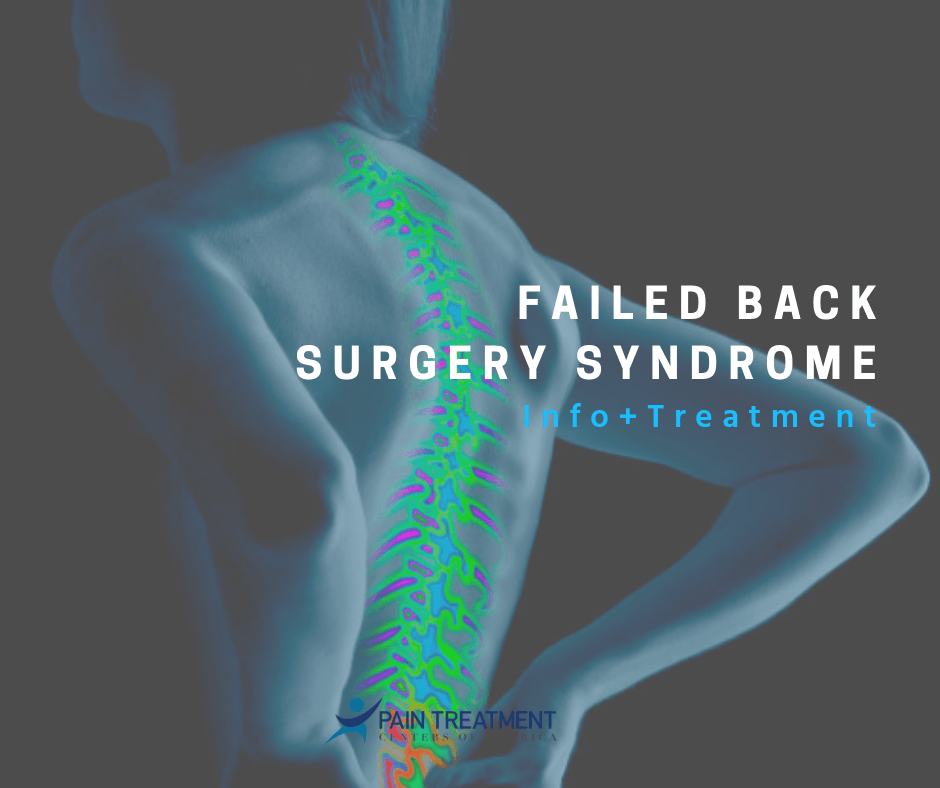What Is Failed Back Surgery Syndrome?

Failed Back Surgery Syndrome
(FBSS) is in fact not actually a syndrome.
FBSS is a general term that applies to individuals that have had unsuccessful back or spine surgery results and continue to suffer from consistent pain.
Because success rates for back surgery vary, we only recommend surgery if there is an identifiable anatomic lesion that can be corrected surgically.
Causes of Failed Back Surgery
The range of causes may include:
- The surgery performed has a low success rate
- Implant failure
- The formation of scar tissue surrounding the root nerve
- Damage obtained during the spinal surgery
- Post-operative infection
- Bone spurs
- Incorrect diagnosis (meaning the area operated on was not the cause of a patient’s pain)
Symptoms of Failed Back Surgery Syndrome
The warning signs of FBSS are as follows:
- New pain beginning after the surgery
- Trouble standing or walking
- Dull, persistent pain in the neck, back, or legs
- Muscle spasms
- Fatigue
- Failure to recover after surgery
Read a Related Article by PTCOA: Three Simple Yoga Poses for Back Pain You Can Do Anywhere
How to Treat Failed Back Surgery Syndrome with PTCOA
While there is no cure for chronic back pain, at Pain Treatment Centers of America we treat patients with compassion and offer our expertise to create a better quality of life.
With procedures that are proven effective, we are able to provide cutting edge, high quality care to our patients.
If you experience the above symptoms of FBSS, you may find relief with a minimally invasive procedure, such as Spinal Cord Stimulator Trial/Implants.
Spinal Cord Stimulator Trial/Implants
If your pain has failed to respond to more traditional treatment options, stimulation of the spinal nerves can help block the feeling of pain. Ultimately, helping improve functionality.

















